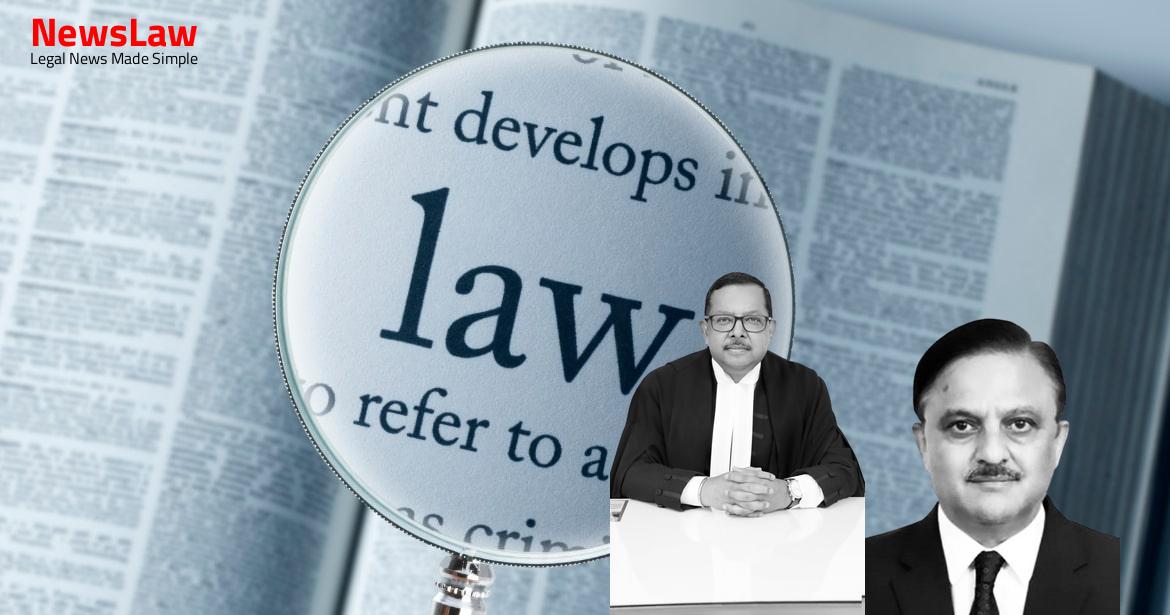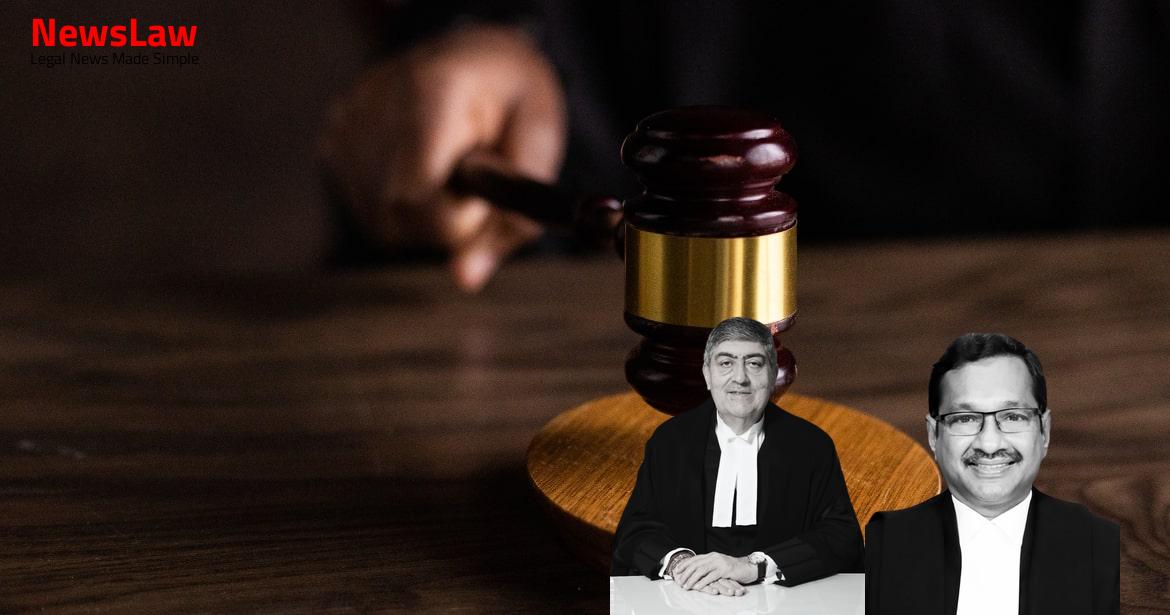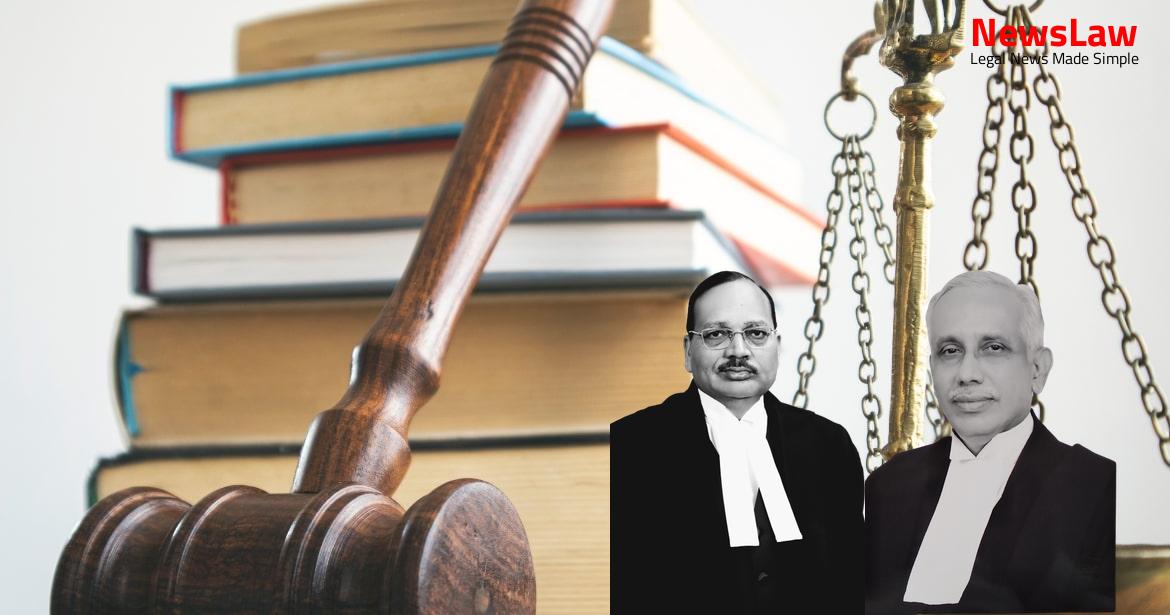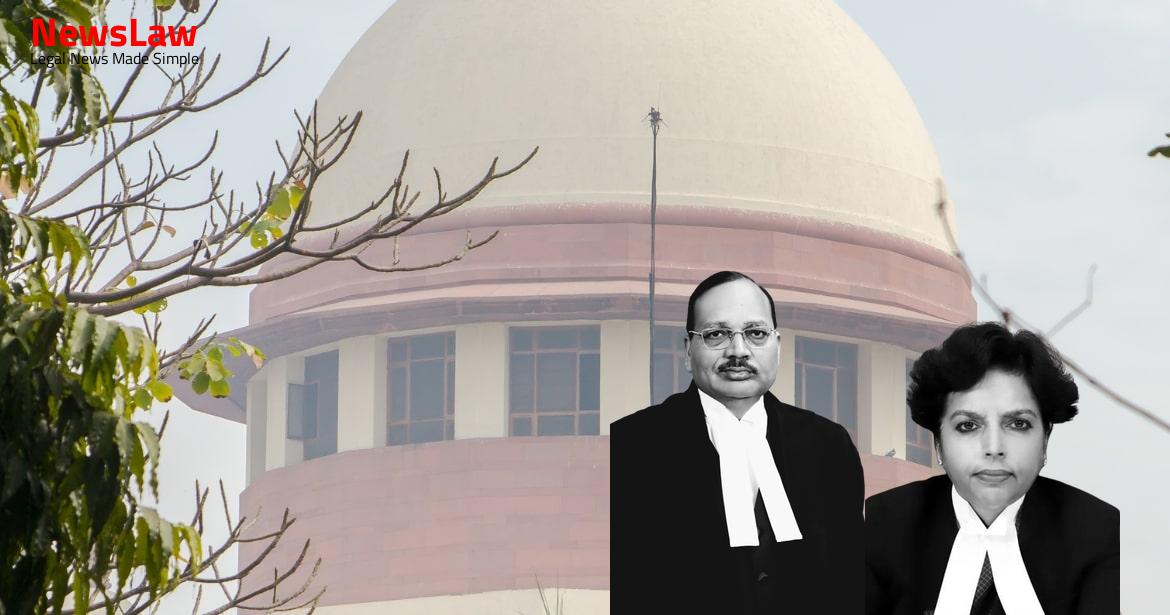Explore the legal labyrinth of the Supreme Court’s verdict in the case of Hanna versus The State of Uttar Pradesh. Delve into the courtroom drama surrounding the appellants’ conviction under various sections of the Indian Penal Code, juxtaposed with the prosecution’s case. Unravel the intricate web of witness testimonies, contradictions, and the court’s scrutiny of evidence. Gain insights into the appellant’s fight for justice against the respondent state. Join us as we navigate through the legal intricacies and implications of this consequential criminal appeal case.
Facts
- PW-1 did not support the prosecution initially but later changed her statement after being recalled.
- Most material prosecution witnesses, except PW-3, did not support the prosecution.
- Police allegedly compelled PW-1 to depose in a particular manner.
- Significant omissions and contradictions were found in the evidence of PW-3.
- The learned senior counsel argued that the evidence of PW-1 should be disbelieved based on documents on record.
- The appellants have been sentenced to life imprisonment for the offence of culpable homicide amounting to murder punishable under Section 302.
- Separate sentences have been imposed for the other crimes committed by the appellants.
- All sentences imposed on the appellants are directed to run concurrently.
Also Read: National Highways Authority of India v. M/s. ITD Cementation India Limited
Arguments
- The learned senior counsel highlighted that the mahazar drawn by the Investigation Officer indicated that the shop in question did not exist.
- He emphasized that during cross-examination, it was revealed that the prosecution failed to establish the alleged motive for the crime.
- The discrepancies regarding the non-existence of the shop and lack of established motive were crucial points brought up by the counsel in ARG_PETITIONER’s favor.
- Learned counsel for the State emphasized that PW-1 should be appreciated considering her background as a rustic woman who lost her son.
- It was highlighted that PW-1 eventually spoke truthfully after being recalled.
- The State’s counsel pointed out that the Investigation Officer’s lack of high education should not discredit the case.
- Emphasis was placed on the fact that PW-1 was an injured eyewitness, making her testimony valuable and not to be discarded.
- The counsel stressed on the emotional aspect, noting that PW-1’s testimony originates from a grieving mother who lost her son to a brutal murder.
- Concerns were raised about the errors in drawing the mahazar as PW-1 may have made mistakes due to the traumatic circumstances.
- The absence of the shop’s display on the map created by PW-1 was deemed insignificant and should not undermine the case.
- In conclusion, it was argued that leniency should not be extended to the appellants due to the severity of the brutal murder and the findings of the Courts.
Also Read: Analysis of Criminal Appeal No. 1637 of 2021: Alauddin & Ors. vs. The State of Assam & Anr.
Analysis
- The prosecution failed to include the widow of the deceased, Malti Bai, as a witness despite her claim of being an eyewitness.
- The witness PW-1 initially supported the prosecution but later recanted her statement due to alleged threats by the accused.
- There were material omissions and contradictions in the testimonies of witnesses PW-1 and PW-3, raising doubts about the credibility of their statements.
- The motive presented by PW-3 was deemed significant and contradictory, leading to skepticism about its validity.
- The police did not investigate the allegations of threats made by the witnesses, undermining the credibility of their claims.
- The witness PW-1 stated she was threatened by the Police to not support the prosecution, casting doubt on her subsequent claims.
- The inconsistencies and discrepancies in the witness testimonies further eroded the prosecution’s case.
- PW-3’s testimony is considered unreliable and difficult to believe.
- Due to this, the prosecution has failed to prove the guilt of the accused.
- The testimony provided by PW-3 is not sufficient to establish the case beyond a reasonable doubt.
Also Read: Parsi Dairy Farm vs. Local Tribals – Supreme Court Judgement
Decision
- The bail bonds of the appellants (accused nos. 2 to 6) have been cancelled.
- The appellants in Criminal Appeal No. 468/2024 are directed to be immediately set at liberty.
- The Appeals have succeeded.
- The impugned judgments dated 26 August 2022 and 6 December 2007 passed by the High Court and Trial Court have been set aside.
- The conviction and sentence of the appellants have been set aside.
- The Appeals in Criminal Appeal No. 467/2024, where the appellant is on bail, are allowed accordingly.
Case Title: HANNA Vs. THE STATE OF UTTAR PRADESH (2024 INSC 390)
Case Number: Crl.A. No.-000467-000467 – 2024



